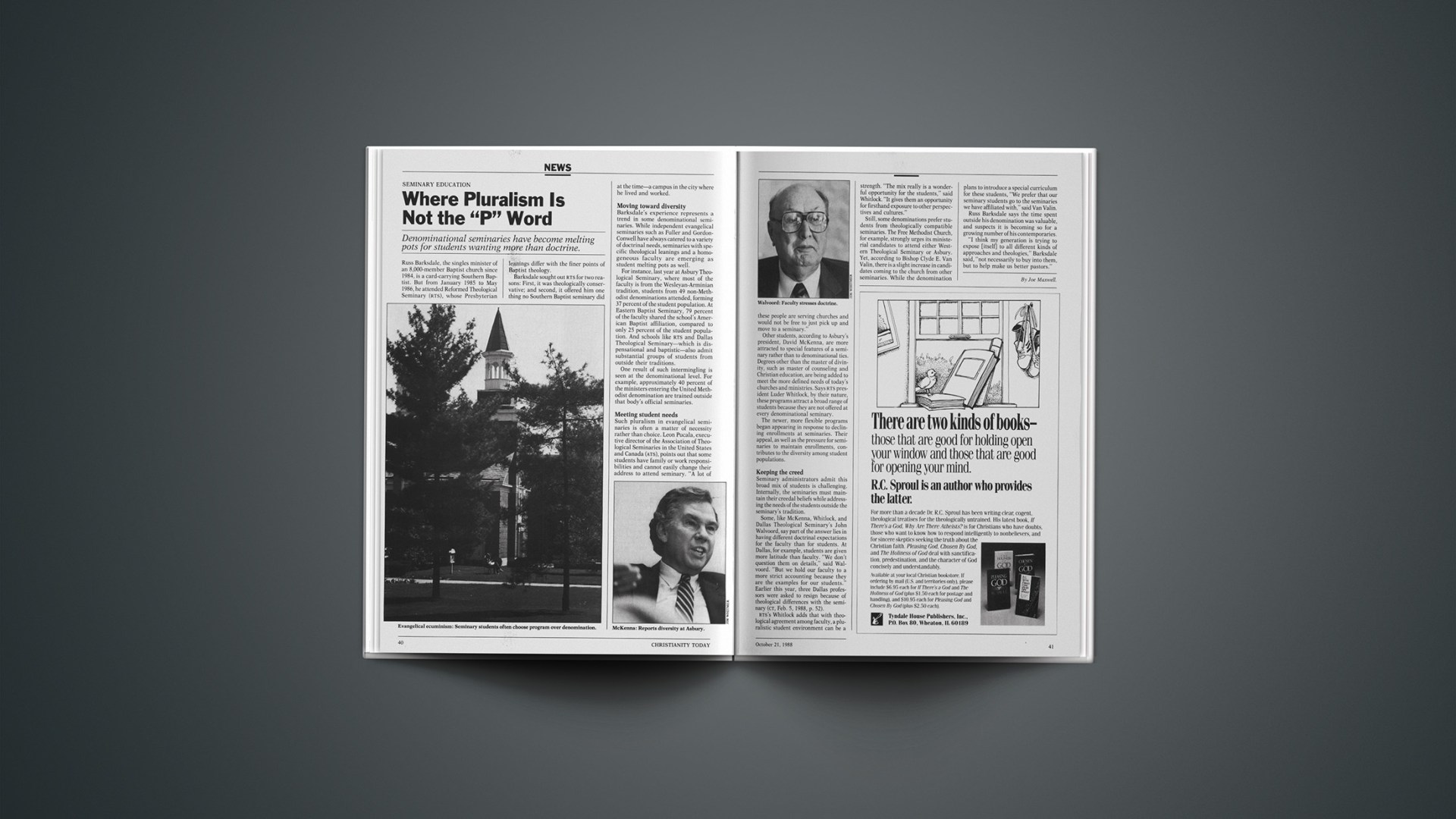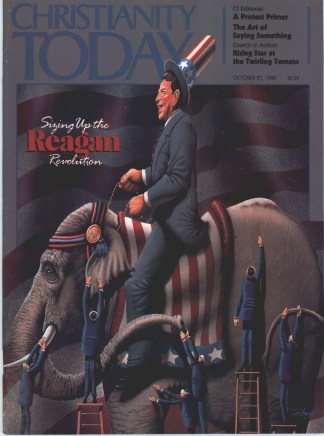SEMINARY EDUCATION
Denominational seminaries have become melting pots for students wanting more than doctrine.
Russ Barksdale, the singles minister of an 8,000-member Baptist church since 1984, is a card-carrying Southern Baptist. But from January 1985 to May 1986, he attended Reformed Theological Seminary (RTS), whose Presbyterian leanings differ with the finer points of Baptist theology.
Barksdale sought out RTS for two reasons: First, it was theologically conservative; and second, it offered him one thing no Southern Baptist seminary did at the time—a campus in the city where he lived and worked.
Moving Toward Diversity
Barksdale’s experience represents a trend in some denominational seminaries. While independent evangelical seminaries such as Fuller and Gordon-Conwell have always catered to a variety of doctrinal needs, seminaries with specific theological leanings and a homogeneous faculty are emerging as student melting pots as well.
For instance, last year at Asbury Theological Seminary, where most of the faculty is from the Wesleyan-Arminian tradition, students from 49 non-Methodist denominations attended, forming 37 percent of the student population. At Eastern Baptist Seminary, 79 percent of the faculty shared the school’s American Baptist affiliation, compared to only 25 percent of the student population. And schools like RTS and Dallas Theological Seminary—which is dispensational and baptistic—also admit substantial groups of students from outside their traditions.
One result of such intermingling is seen at the denominational level. For example, approximately 40 percent of the ministers entering the United Methodist denomination are trained outside that body’s official seminaries.
Meeting Student Needs
Such pluralism in evangelical seminaries is often a matter of necessity rather than choice. Leon Pucala, executive director of the Association of Theological Seminaries in the United States and Canada (ATS), points out that some students have family or work responsibilities and cannot easily change their address to attend seminary. “A lot of these people are serving churches and would not be free to just pick up and move to a seminary.”
Other students, according to Asbury’s president, David McKenna, are more attracted to special features of a seminary rather than to denominational ties. Degrees other than the master of divinity, such as master of counseling and Christian education, are being added to meet the more defined needs of today’s churches and ministries. Says RTS president Luder Whitlock, by their nature, these programs attract a broad range of students because they are not offered at every denominational seminary.
The newer, more flexible programs began appearing in response to declining enrollments at seminaries. Their appeal, as well as the pressure for seminaries to maintain enrollments, contributes to the diversity among student populations.
Keeping The Creed
Seminary administrators admit this broad mix of students is challenging. Internally, the seminaries must maintain their creedal beliefs while addressing the needs of the students outside the seminary’s tradition.
Some, like McKenna, Whitlock, and Dallas Theological Seminary’s John Walvoord, say part of the answer lies in having different doctrinal expectations for the faculty than for students. At Dallas, for example, students are given more latitude than faculty. “We don’t question them on details,” said Walvoord. “But we hold our faculty to a more strict accounting because they are the examples for our students.” Earlier this year, three Dallas professors were asked to resign because of theological differences with the seminary (CT, Feb. 5, 1988, p. 52).
RTS’s Whitlock adds that with theological agreement among faculty, a pluralistic student environment can be a strength. “The mix really is a wonderful opportunity for the students,” said Whitlock. “It gives them an opportunity for firsthand exposure to other perspectives and cultures.”
Still, some denominations prefer students from theologically compatible seminaries. The Free Methodist Church, for example, strongly urges its ministerial candidates to attend either Western Theological Seminary or Asbury. Yet, according to Bishop Clyde E. Van Valin, there is a slight increase in candidates coming to the church from other seminaries. While the denomination plans to introduce a special curriculum for these students, “We prefer that our seminary students go to the seminaries we have affiliated with,” said Van Valin.
Russ Barksdale says the time spent outside his denomination was valuable, and suspects it is becoming so for a growing number of his contemporaries.
“I think my generation is trying to expose [itself] to all different kinds of approaches and theologies,” Barksdale said, “not necessarily to buy into them, but to help make us better pastors.”
By Joe Maxwell.










